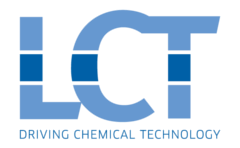Heterogeneous catalysis for biobased light olefin production: from (micro)kinetic understanding to process concepts
Aim
Within the area of catalytic reaction engineering, the Laboratory for Chemical Technology aims at recruiting a postdoctoral researcher with a background in heterogeneously catalysed kinetics, from the modelling perspective, preferably with some experience in (intrinsic) kinetic experiments. This position will give the applicant the opportunity to perform own research while taking an active role in coaching team members.
Context
Light olefins are key building blocks in the chemical industry with applications in polymer as well as in specific chemicals, such as aldehydes, production. In the area of biomass valorisation, the catalytic dehydration of biobased alcohols and polyols to olefins is currently a hot topic. The reaction is at the core of the GREEN-B2B (Acid-catalyzed production of green butadiene from butanediols) Moonshot project [1]. The same reaction also serves the purpose of selectively producing butadiene in the SPICY (Sugar-Based Chemicals and Polymers through Innovative Chemocatalysis and Engineered Yeast) project [2]. In the H2020 C123 project [3] in which Ghent University is teaming up with SINTEF, a Norwegian research organization, for the coordination and scientific management, ethylene (and a mixture of synthesis gas) are targeted, for further use in production of C3 species in general and propylene in particular.
Program
We are looking for a post-doctoral fellow to lead the design of a process for biobased butadiene production. First, a detailed insight in the reaction kinetics will be established under the form of a (micro)kinetic model, of which the parameters will be determined via regression to experimental data acquired by the project partners. Subsequently, the detailed model will be integrated in a process simulator such as, e.g. Aspen Plus. In parallel, the post-doc is expected to actively take up a role in coaching at least one PhD student. A best match will be pursued accounting for the specific background of the candidate.
